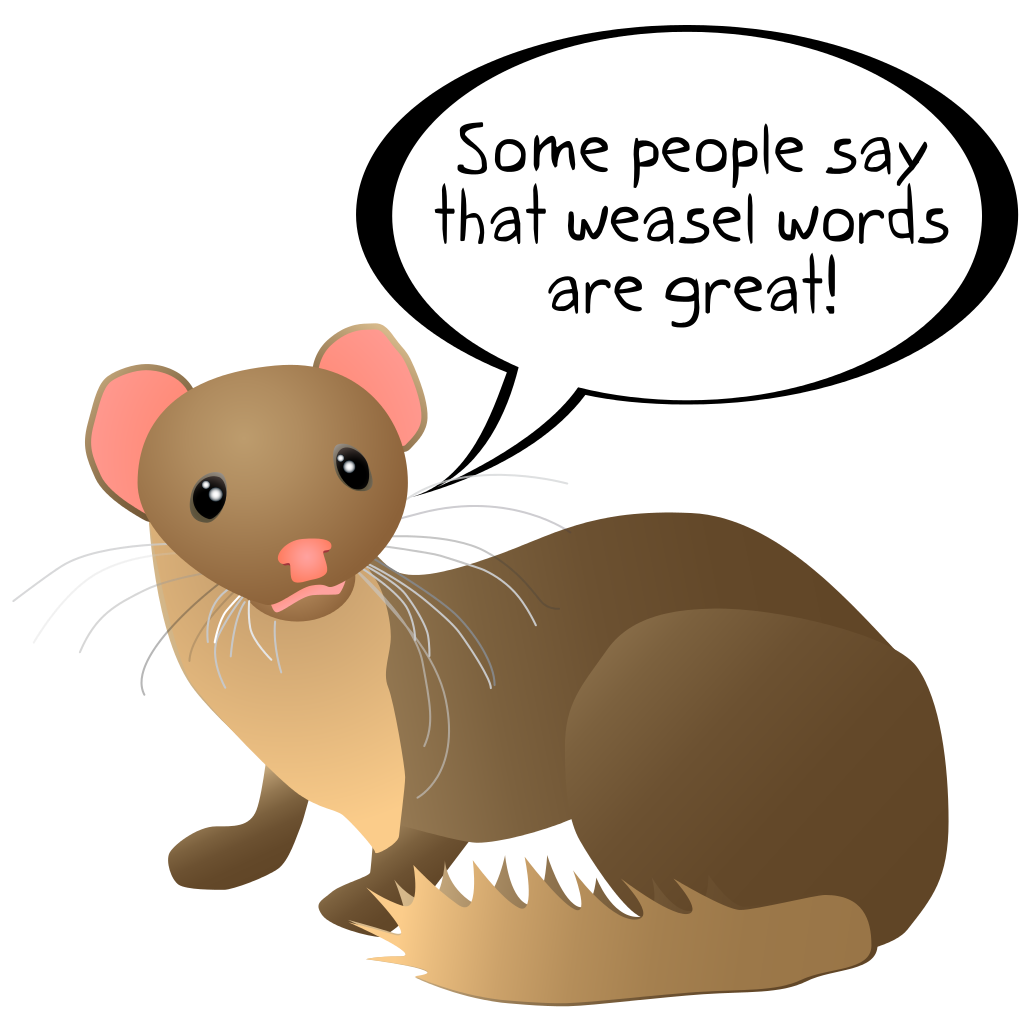During the year that I lived in Nigeria in the early ’80s, I was known affectionately as Weasel. People tell me it wasn’t because I was partial to using weasel words; evidence supports the commonly-held belief that my first name had something to do with it. Welcome to weasel words, which – as any good linguist will tell you – pepper the language of advertisers, marketeers and politicians, among others. This is the first of a few Glosso posts that will be taking a look at a whole category of words and phrases — including, for example, kadigans, fillers, and phatic expressions (sic) — that serve a social, cognitive or emotional purpose other than the actual message being communicated in words. They can be subliminal or subconscious; they can be subversive, misleading, or even helpful – to either the speaker or the listener. And you use them all the time without even realizing it …
Weasel words are words and phrases such as “researchers believe”, “in most respects”, “most people think” that make arguments appear specific or meaningful when they’re really just ambiguous and vague. You find them in advertising, marketing and political statements; they’re cleverly or subconsciously designed to soften, understate or legitimize a biased, unfounded or controversial statement, and they lend “fake credibility” to otherwise dubious claims or vague observations. Weasel words can be a form of tergiversation. Yeah, that’s a real word.
Perhaps the most fascinating thing about a weasel word is where it gets its name from. It might derive from the egg-eating habits of weasels, and Shakespeare came close to coining the phrase — close, but no cigar. As Phrasefinder explains: “It has long been a widespread belief that weasels suck the yolks from bird’s eggs, leaving only the empty shell. … There is now some doubt amongst naturalists as to whether weasels do suck eggs. The tiny mammals are certainly ferocious and, pound for pound, amongst the most dangerous predators on the planet, being easily able to kill an entire coopful of chickens that are hundreds of times their weight. They have a bad reputation with country dwellers but the egg-sucking behaviour is unproven. Whether or not they actually suck eggs, Shakespeare and his contemporaries believed they did. The Bard didn’t coin the expression ‘weasel words’, but he came very close, when he made two references to the supposed habits of weasels” – in Henry V and As You Like It. You can read the full curious, mysterious story of the weasel word — involving Teddy Roosevelt, the New York Times, accusations of plagiarism and more — at Phrasefinder.
***

